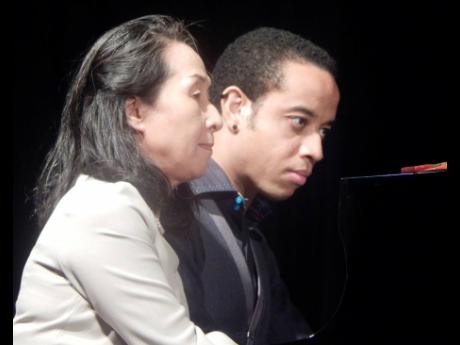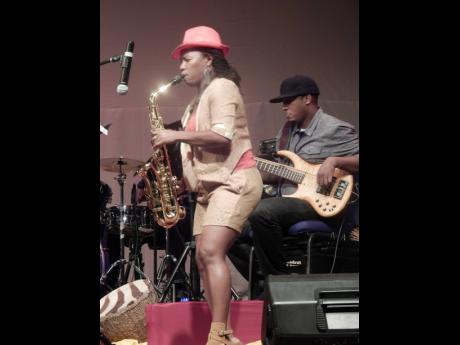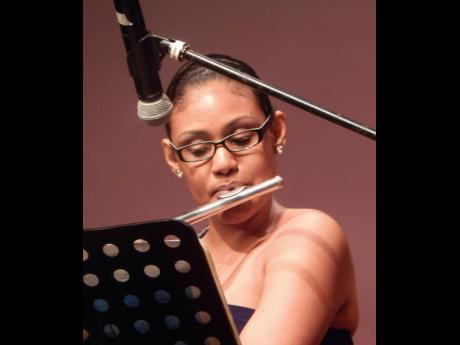For the Reckord | EMCVPA School of Music’s Parallel Paradox
There seems to have been a communication failure among the three performing arts schools at the Edna Manley College of the Visual and Performing Arts, with all three having overlapping productions last weekend. And the Buju Banton concert just down the road at the National Stadium on Saturday night, didn’t help matters.
So some patrons (including me), who would have wanted to attend all three shows, had to settle for two – one on Friday and one on Sunday.
I attended the School of Music’s second faculty concert for the academic year, Parallel Paradox – the title refers to the goal of the production – to show the combination of classical and popular music. That goal we heard from School of Music head Roger Williams, who made announcements over the PA system between items.
The grand piano, the largest instrument on the stage of the Vera Moody Concert Hall where the concert was held, showed its versatility by being used to play both classical and popular pieces. Apparently, though, its sound was not right for the calypso, Shotgun Wedding, which ended the programme. When Derek Been came on stage to sing it, the pianist, Michael ‘Ibo’ Cooper, switched from the grand piano to a keyboard.
Two other pianists, Yuko Aoki, who was “on loan to the school from Japan for two years,” and lecturer Stephen Shaw-Naar started the evening’s entertainment with Johannes Brahms’ Hungarian Dances for Piano, Four Hands. Considering these first and final items together should enlighten the puzzled patron about the meaning of the concert’s name. The evening’s repertoire was a ‘paradox’, because it comprised popular classical pieces (i.e., pieces well known to the public) as well as music formally categorised as ‘popular music’.
classical composers
Some other classical composers featured were: Camille Saint-Saens (Keturah Gray on flute, Rafael Salazar on clarinet and Ann McNamee on piano); Chopin (Aoki); Claude Bolling’s jazz composition played by Gray, McNamee, Derrick Stewart on drums and William Eggleston Jr on bass.
Among a generally fine set of popular music pieces were some standouts: Shaw-Naar’s interpretation of Louis Jacob Weertz’ arrangement of Autumn Leaves, and Andrew Marshall’s arrangement of the traditional Jamaican folk tune Liza (played by Salazar, McNamee and Darren Young on violin), lifted both compositions to classical heights. Jamaican composer Oswald Russell’s Jamaican Dances (which included Sammy Dead and Ruckumbine) as played by Aoki was sublimely poignant. Trevelle Clarke-Whyne’s singing of Dreamland (with backing by Christopher Campbell on guitar and Reuben Betty on percussion) was both sexy and humorous. And Duke Ellington and Juan Tizol’s Caravan was a tour de force, as clearly the producers intended it to be. They had it played by a virtual ‘big band’ consisting of Cooper (on the grand piano), Gray, Salazar, Eggleston, Stewart, Betty, and Ornisea Williams on alto saxophone.
Those who missed the recital or the Drama School’s play can have their fill of these presentations over two weeks in April and May.



